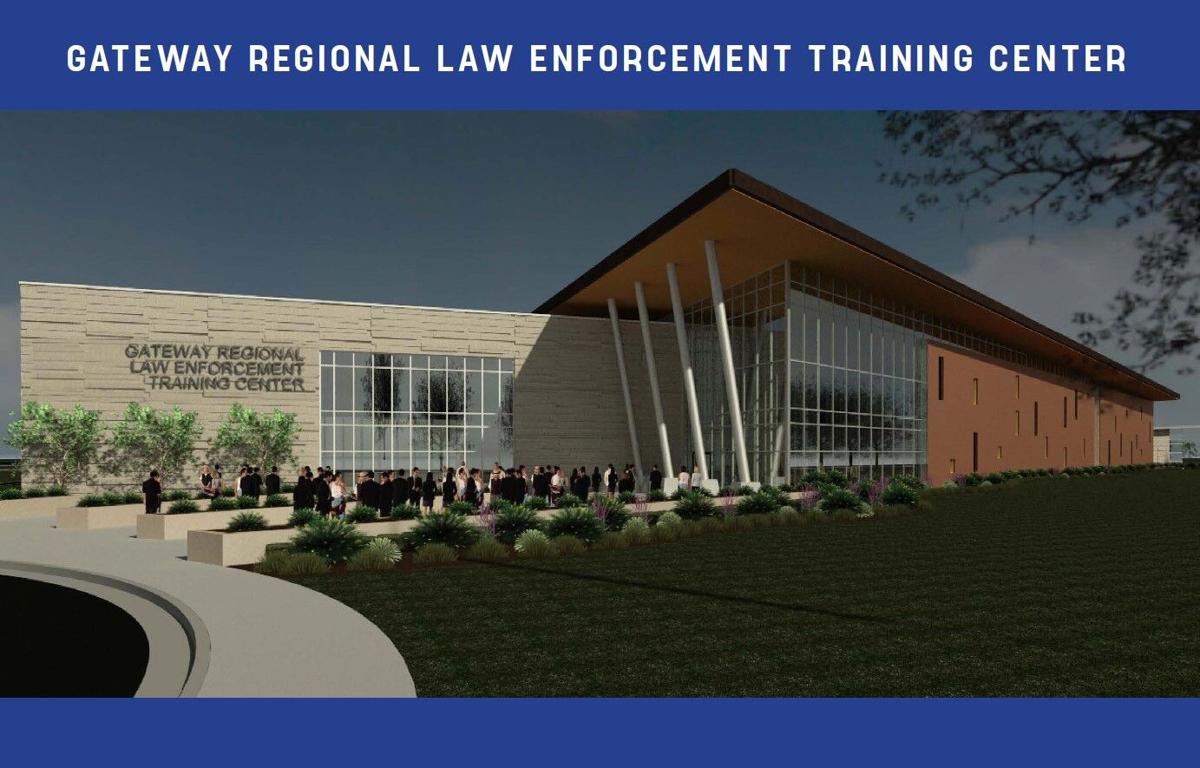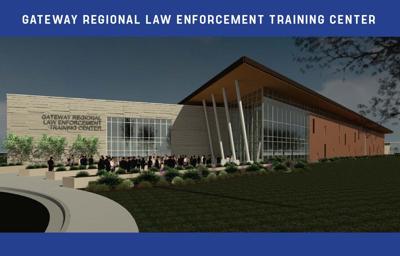A group of political and civic leaders have worked for months on a plan to build a massive law enforcement training center that could serve police and sheriff departments in St. Louis County and surrounding counties.
Getting it to the finish line, however, will require overcoming several obstacles. The biggest one: the city of St. Louis is not on board, at least for now.
St. Louis County Executive Sam Page said discussions about the training center, which would include a police academy, began years ago, with the primary goal of uniting the police academies in the city and county. Bob Brinkmann, CEO of Brinkmann Constructors and a board member of the nonprofit , has been heavily involved in the discussions.
Eventually, St. Charles County Executive Steve Ehlmann joined the talks. Executives or commissioners in Jefferson, Franklin, Warren and Lincoln counties are also involved.
People are also reading…
The same leaders have been working on an East-West Gateway Council of Governments initiative called to reduce homicides in the region. That project produced a unified strategy, called “focused deterrence,” for homicides, which have been falling in the city the past couple of years.
The proposed training center would help unify police training in the region.
“It’s a big deal,” Page said in an interview this week. “We just have to make sure we do it right.”
This year, the Missouri Legislature tucked away $50 million in a line item for the project. While the bill was in the Senate, Page said, the plan was for the money to go directly to St. Louis County. But the final language was changed so the money would go to a nonprofit group to run the training facility.
The change highlights one of the difficulties of seeking funding from the Missouri Legislature for policing issues. The Legislature is controlled by Republicans, and they spend an inordinate amount of time blaming crime problems on Democrats like Page and St. Louis Mayor Tishaura O. Jones.
The nonprofit is intended to put all the government entities on equal footing, but that might complicate the process, Page said. He has not signed off on that part of the plan. Currently, the county, with more than 800 officers and the home of several large municipal departments, would be the dominant force in the new center. Page is concerned about how management of the nonprofit would take shape and whether the county, and potentially the city, would have to cede control to smaller counties.
In June, Ehlmann and other county leaders involved in the project wrote Parson, urging him to approve the funding.
“No single partner will dominate the decisions,” they wrote.
Local sheriffs and police chiefs, they added, would “operate this regional asset as peers who each have equal voices.”
The plans calls for the training facility to spread over 80 acres, with a driving track, running track, gyms and an auditorium. There is no cost estimate yet, though each government entity would be expected to help pay for it, on top of the state money. St. Louis County has already budgeted $2 million for annual operating costs.
Jones has been involved in the discussions. But mayoral spokesman Conner Kerrigan said this week that “the city of St. Louis is not a participant in this project.”
Kerrigan would not elaborate, but recent history offers context. For the past two years, Jones has battled the Legislature over control of the St. Louis Metropolitan Police Department. Many of the Republican lawmakers in the counties working on the training center supported efforts to return the city’s department to state control.
Page and Ehlmann both say they hope the city eventually becomes part of the training center plan. No site has been identified, but Page believes undeveloped land around St. Louis Lambert International Airport makes sense.
“I think the mayor is interested and would consider coming in some day,” Page said. “One of my primary goals is to make sure that it is done in a way that St. Louis city would be comfortable joining.”
The move to build a regional law enforcement training center follows a national trend. Most famously, the city of Atlanta has faced months of protests over its so-called a massive training complex that is under construction. Activists and civil-rights groups have decried the expensive facility as a sign of more militarization in law enforcement. Other regional training centers are being built or considered in dozens of other cities, including Dallas, Baltimore, Chicago and Oakland.
This is another reason why the project could be difficult for Jones in an election year. The St. Louis activist community, a key voting constituency for the mayor, could oppose the training center, depending on funding and other details.
But the politics of the training center are also difficult for Ehlmann. The plan comes as two communities in St. Charles County — O’Fallon and the city of St. Charles — are working to build a similar facility in O’Fallon, north of Highway 79. That project has run into a flood of criticism, including from the governor, who approved the $50 million for the regional training facility but vetoed money for the O’Fallon center.
And now, a conservation group, the , has told leaders in St. Charles County that it plans a lawsuit to stop the proposed O’Fallon facility because at least part of it would be built in the 100-year flood plain of the Missouri River.
“There is a time and place where you simply have to stand your ground and fight,” the alliance wrote in a letter to O’Fallon Mayor Bill Hennessy and St. Charles Mayor Dan Borgmeyer. “Highway 79 is our line in the sand. We will fight and use all legal means to protect from development all lands east of the Highway 79 shoulder.”
The alliance was founded by Adolphus Busch IV and other civic leaders who have fought flood plain developments and encouraged conservation efforts, including preserving waterfowl hunting opportunities and protecting land around the confluence of the Missouri and Mississippi Rivers.
“Any type of development in the flood plain is problematic,” Busch told me in an interview. “Highway 79 has been under water three times in recent past. I told them in no uncertain terms that we will keep them in court as long as we can.”
Hennessy said that after talking to Busch, he doesn't believe a lawsuit is imminent. He questioned whether the regional police training center will ever come together.
Ehlmann said he hasn’t specifically worked against the O’Fallon facility but that “they never asked us to help. … Personally, I’m opposed to flood plain development. I think it’s unwise.”
The dueling proposals, and the hurdles facing both, are the latest examples of fractured politics in the St. Louis region, long an obstacle to the area’s growth.
“As a region,” Ehlmann says, “we don’t have many things we do well together.”
There have been glimmers of hope that local leaders can come together to solve problems and cooperate across boundaries, even in a time of deep political divides. But the dueling police training centers — when, at best, only one is feasible — offer the next challenge.
“We all agree that it should be done,” Page says. “We’re going to try to find a path forward.”
������Ƶ metro columnist Tony Messenger discusses what he likes to write about.


















